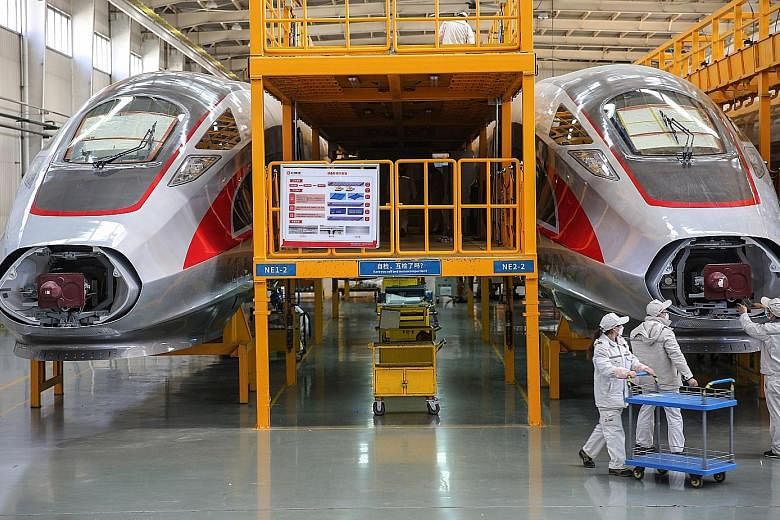Asia's factory pain worsened last month as the slump in global trade caused by the coronavirus pandemic worsened, with export powerhouses Japan and South Korea suffering the sharpest declines in business activity in more than a decade.
A series of manufacturing surveys released yesterday suggest that any rebound in businesses will be some time off, even though China's factory activity unexpectedly returned to growth last month.
China's Caixin/Markit Manufacturing Purchasing Managers' Index (PMI) hit 50.7 last month, marking the highest reading since January as the easing of lockdowns allowed companies to get back to work and clear outstanding orders.
But with many of China's trading partners still restricted, its new export orders remained in contraction, the private business survey showed yesterday.
China's official PMI survey on Sunday showed the recovery in the world's second-largest economy intact but fragile.
Japan's factory activity shrank at the fastest pace since 2009 last month, a separate private sector survey showed, while South Korea also saw manufacturing slump at the sharpest pace in more than a decade.
Capital Economics said the region's manufacturing sector is in deep recession. "Industry is likely to have seen an initial jump from the easing of lockdown restrictions. And things are likely to continue improving very gradually over the coming months as external demand recovers," it wrote.
"But output is still likely to be well below normal levels for many months to come, as domestic and global demand remain very depressed."
Taiwan's manufacturing activity also fell last month. Vietnam, Malaysia and the Philippines saw PMIs rebound from April, though the indexes all remained below the 50-mark threshold that separates contraction from expansion.
Official data yesterday showed South Korea extending its exports plunge for a third straight month.
India's factory activity contracted sharply last month, extending the major decline seen in April as a government-imposed lockdown hammered demand.
Asia's economic woes are likely to be echoed in other parts of the world including Europe, where economies continue to suffer damage in the factory and service sectors.
Some optimism, however, may be found in the fact that many countries have slowly started to reopen parts of their economies even though cases of the virus are still being reported.
The euro zone's PMI for last month showed a slight recovery after crashing to its lowest reading in nearly 22 years.
The IHS Markit's Manufacturing PMI released yesterday rose to 39.4 last month from April's 33.4.
"The improvement in part merely reflects the comparison against a shockingly steep fall in April, but more encouragingly was also linked to companies restarting work as virus lockdowns were eased," said IHS Markit's chief business economist Chris Williamson.
But the trough in global economic activity will be deeper and the rebound is likely to take longer than previously predicted as the pandemic spreads in waves.
The International Monetary Fund warned of this last month and suggested a downgrade to its current projection for a 3 per cent contraction this year.
A United States-China spat over Hong Kong's status and Beijing's handling of the pandemic could sour business sentiment further.
South Korea's IHS Markit PMI edged down to 41.3 last month, the lowest since January 2009 and below the 41.6 in April.
The final au Jibun Bank Japan Manufacturing PMI fell to a seasonally adjusted 38.4 from 41.9 in April, its lowest since March 2009.
"Until we see a sustained improvement in demand, manufacturing conditions are likely to remain fragile," said Mr Joe Hayes, an economist at IHS Markit.
REUTERS











